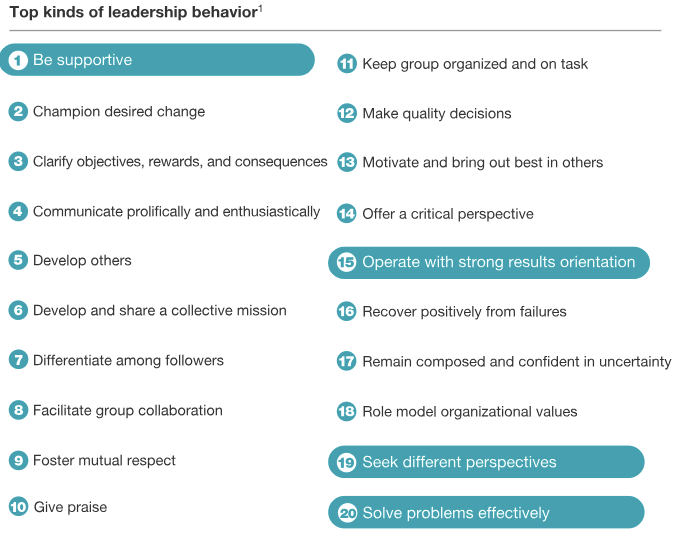How To Develop Effective School Leaders
Telling principals that leadership drives school performance is a bit like saying that we need oxygen to breathe.
Over 40 percent of schools are preparing to increase investment in leadership development across the country. Most schools see leadership as the single most important human-capital issue they face.
And they’re right to do so: our research has consistently shown that good leadership is essential for school organizational health, which is an important driver of student outcomes.
A major unresolved issue is what kind of leadership behavior should schools encourage. Should schools concentrate their efforts on:
▪︎ enhancing managerial competencies -such as decision-making, planning and execution?
▪︎ developing their staff's internal communication?
▪︎ funding pedagogical and classroom leadership training?
School leadership-development programs address
an extraordinary range of issues:

Recent research demonstrates that a small subset of competencies drives most of the correlation between school performance and educational leadership.
Several studies have found that leaders in schools with high-quality administrative teams typically exhibited four out of the typical 20 types of leadership behavior; and these four explain about 79 percent of the variance between strong and weak schools regarding managerial effectiveness.
The results reflect those of Claudio Feser and Fernada Mayol of McKinsey.
The four leadership competencies are :
✓ Solving problems effectively
The process that precedes decision making is problem-solving; when information is collected, then analyzed, and finally used to drive decisions. This is considerably difficult to get right, yet it is a crucial input into strategic thinking for major as well as daily issues (such as how to handle a team dispute).
✓ Being results-oriented
Leadership is not only about setting and communicating the team's vision and objectives. It also requires operational and managerial skills to follow through and achieve results. School leaders with a strong 'results' orientation tend to emphasize the importance of educational outcomes and to prioritize the highest-value work.
✓ Seeking different perspectives
This trait is prominent in school administrators who monitor trends affecting education, grasp changes in the environment and encourage staff to contribute ideas. Leaders who do well on this trait typically pull opinions from a wide range of colleagues and base their decisions on thorough analysis and reflection.
✓ Empathizing and supporting your colleagues
Leaders who can sense how people feel are much more effective in empathizing and helping their colleagues. Through authentic communication and by showing a genuine interest in people around them, they build trust and inspire their colleagues to overcome obstacles. They help build organizational efficiency by eliminating internal conflict and thus preventing their staff's energy from dissipating.
We are not saying that the decades-old debate about what distinguishes great school leaders is over or that context is unimportant.
Experience shows that different situations often require different styles of leadership.
We do believe, however, that recent research points to a kind of core leadership behavior that will be relevant to most schools today. For schools investing in the development of their future leaders, prioritizing these four areas is a good place to start.
*adapted from McKinsey & Company
